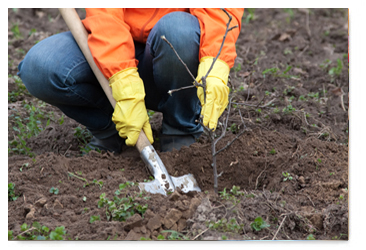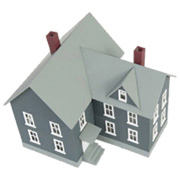


Winston Churchill defined an optimist as a person who sees the opportunity in every difficulty, instead of the difficulty in every opportunity. Upbeat, self-affirming and indomitable, people with optimistic attitudes typically live longer, healthier and more successful lives than their pessimistic counterparts.
There are several characteristics that will help you identify an optimist when you meet one, or that you can learn to become one yourself.

1. Finding the Good.
When a problem arises for an optimist, the last thing he is prone to do is gnash his teeth and wail about the unfairness of life. On the contrary, an optimist will not only approach the conundrum with a can-do attitude, but will look at the problem as a chance to gain new experiences and opportunities. An optimist may be momentarily daunted by losing her job or moving to a foreign country for work, but she will quickly come to view this as an opportunity to finish the novel she’s been meaning to write or learn new languages and customs. Even if the ideal solution cannot be reached, optimists will find half-measures that enable them to approach the problem in smaller, manageable chunks.
2. Keeping the Good Stuff.
While some optimists may be cheerful and sunny, many optimists are low-key and easygoing. What they have in common is the ability to stay positive, even in trying times. Ask an optimist how his day has been and he will tell you about the funny barista at the coffee shop next to his office and the great deal he found while buying a new shirt. Never mind that the barista got their order wrong, and that the optimist found the new shirt after he spilled the coffee all over his original work attire. Optimists tend to focus on the positive, prioritizing the good events in their life over the negative ones.
3. Seeing Success.
The idea of telling herself that she won’t get the job promotion, or of convincing himself that he won’t find a date for Friday night, simply doesn’t occur to an optimist. Visualizing their success and preparing themselves to succeed are essential qualities of optimists. Negative, self-fulfilling thoughts as to their own inadequacy and worthlessness are not a part of an optimists’ thought processes. Instead, an optimist will tell herself that she will achieve her goals, taking the necessary steps. If an optimist’s plan falls through, she steps back, reassesses the situation, and begins again with a new approach and more self-affirmation.
4. Up for Adventure.
Optimists have been called “happy-go-lucky,” and rarely does an optimist pass up an opportunity for a new and unexpected adventure. This spontaneity is an important characteristic of optimists. An optimist sees spontaneity as a win-win scenario, since he will see something unfamiliar and unplanned as the opportunity to discover new interests, friends and locations. Even if the unplanned goes awry, optimistic people will tell themselves that the stories alone will provide enjoyment for years. This up-for-anything, play-it-by-ear mentality is the sign of a true optimist.
Always be sure to do your best to “keep on the sunny side of life”.



Motion detectors detect any sort of motion. When connected to a transformer the motion gets translated into an electric signal. This device may be connected to a burglar alarm that immediately alerts the home-owner of any motion that gets detected.
There are three types of sensors:
1. passive infrared sensors
2. ultrasonic active sensors
3. microwave active sensors
Most motion detectors use a combination of different technologies. These dual-technology detectors benefit each other to reduce complications of false alarms. Motion detectors offer feelings of protection and security. Most people find them suitable for
• driveway alarms
• yard alarms
• burglar alarms
• door announcers
Motion detectors make a safe path to welcome you back home, deterring would-be-intruders. When lights are triggered by motion this gives the impression that someone is home and able to see the burglar. Infrared motion detectors placed in crucial areas of the house can detect any burglars and alert the homeowner or police.
Motion detectors have the advantages of being:
1. portable
2. transportable
3. easy to install
4. no monthly monitoring fees
Studies on crime prevention indicate that houses set up with motion detectors do help enhance security. They are a great way to get all the benefits of having a watchdog without the hassle of owning a dog.

Keep good feelings flowing throughout your home with the right hues.

Beat the stress with blue.
Need to relax? Choose blue. It has been shown to lower blood pressure and heart rate, so you will be able to stay calm, cool and collected throughout the day. Paint a piece of furniture blue or hang blue curtains to feel more tranquil.
Boost optimism with yellow.
The sunny shade causes a surge in the feel-good hormone serotonin, leaving you more cheerful. Turn any room into a hub of activity by adding yellow pieces like a comfy chair, a soft throw or pillows.
Jumpstart your life with red.
Looking at the color red has been shown to stimulate circulation, giving you get-up-and-go. Welcoming guests with a shot of red sets the stage for fun. Red makes them feel upbeat.
Enjoy inner harmony with green.
Restful and rejuvenating green stabilizes your mood and helps you feel centered. Stop family fights by putting green in the living room. It creates a sense of well-being and encourages people to get along with each other.
Invite happiness with orange.
Orange, the color of warmth, enthusiasm and excitement is proven to help you feel happier, confident and more energetic. Orange accents give a room a fresh, welcoming feel. Scatter a few pillows, add an orange rug or paint just one wall orange to turn your living room into an inviting gathering space.

Water conservation is easy when efficiency is kept top of mind.

Your municipal water supply can quickly be estimated using the calculator available at www.home-water-works.org. Once homeowners know what areas of the home are using the most water, they can learn how to cut down on water use, to protect this valuable resource while also saving money.
Here are some simple household water conservation tips that won’t sacrifice comfort or convenience.
• Only wash full loads of laundry or dishes.
• Invest in high-efficiency toilets, dishwashers and washing machines.
• Find and fix leaky faucets, toilets and taps.
• Never leave water running while washing dishes or brushing teeth.


Smoke alarms are an incredible success story. Once the concept took hold in the 1970s, it wasn’t long before the fire death rate was cut in half! Now, decades later, most homes have at least one smoke alarm but we still have a problem – the smoke alarms aren’t working! In one quarter of the homes with smoke alarms, the smoke alarms don’t work. The cause is missing, dead or disconnected batteries (National Fire Protection Association). Pillar To Post® would like to encourage you to pay more attention to your smoke alarms.
The two key goals of smoke alarms are
• To wake you up. You can’t sense smoke and flame when you are asleep.
• Early warning. The sooner you know about a fire the better the possible outcome.
Placement of Smoke Alarms
While you should consult the instructions provided with the smoke alarm, here are some general guidelines. We do not address local bylaws and codes here.
• There should be at least one smoke alarm per floor including the basement.
• Smoke alarms should be placed outside every separate sleeping area. Many authorities suggest an alarm inside each bedroom as well.
• The alarm can be placed on the ceiling or high up on the wall. If the alarm is on the ceiling, it should be at least four inches away from any walls. If the alarm is on the wall, it should be at least four inches but not more than twelve from the ceiling.
• Peaked ceilings have stagnant air at the top. The smoke alarm should be three feet from the highest point.
• Do not place the smoke alarm where it could be affected by drafts such as next to a window or air vent.
Maintaining your Alarm
Test the smoke alarm once per month by pressing the test button until the alarm sounds then release the button. If the smoke alarm is battery operated, replace the battery every year. If you hear a chirping sound from the smoke alarm, change the batteries. Dust or vacuum the surface periodically. Replace the entire unit if it is older than 10 years or if you are not sure how old it is. Print the installation date inside the cover.
Escape Plan
Smoke and flame can spread quickly so you need to react quickly. It is vital that you and your family know what to do on hearing a smoke alarm. You should plan an escape route from every area of the home and identify a safe area to meet outside the home. You should rehearse the escape plan with your family. Walk through and identify obstacles that may slow you down such as windows that are jammed or exits that are crowded with storage etc.


Since shapes represent something outside themselves, your mind makes subconscious associations with shapes. For new insight into your personality, quick - without thinking - pick the shape that appeals to you.
• Rectangle - You are wise.
• Circle - You are intuitive.
• Triangle - You are a leader.
• Squiggle - You are open-minded.
• Diamond - You are an optimist.
• Square - You are a concrete thinker.


Deodorize the microwave.
Put two tea bags in a mug filled with water and microwave for 30 seconds to absorb bad odors.
De-puff your eyes.
Use the healing power of tea to get rid of dark swollen under-eye circles. Steep two tea bags, let cool, and then place over your eyes and relax for 15 minutes. The tea’s tanins and caffeine work together to reduce puffiness.
Rust-proof your cast-iron pan.
After washing out a cast-iron pan, rub a cooled brewed tea bag all over the pot. Dry thoroughly before putting it away. The tannins in the tea leave behind a rust-repelling film that keeps the pan pristine.
Freshen Kitty’s litter.
After enjoying a cup of tea, let the tea bags dry out. Once dry, cut open the bag and mix the contents into the kitty litter. The tea helps neutralize any odors.


Nuisance tripping of your smoke alarm is bound to happen occasionally. Unfortunately, many people remove the battery to silence the alarm with the good intention of replacing it after the smoke clears.
Here are some better ways to deal with nuisance tripping:
1. Use an alarm with a ‘hush button’.
2. Move the smoke alarm a little further from the kitchen area.
3. Try a different type of alarm. Some experts say that a photoelectric smoke alarm is a little less sensitive to common causes of false alarms.

CLICK HERE FOR A PRINTABLE PDF

(800) 294-5591
pillartopost.com
If you would like to use any of this content for your own use, please contact marketing@pillartopost.com


 icon and select "Add to Home Screen".
icon and select "Add to Home Screen".




















